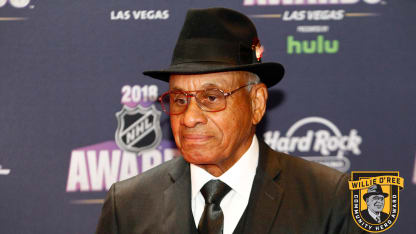Flint, Michigan
Flint Inner-City Youth Hockey Program
Phillips, a firefighter in Flint, formed the program in 2010 to expose kids between the ages of 8-11 to hockey and give them a sense of hope in an economically struggling city where hope often is in short supply.
Players receive free equipment, ice skating and hockey instruction during the nine-week program, held at Dort Federal Credit Union Event Center.
For Phillips, it's about giving back to his hometown.
"I'd say this is a medium-size town, Flint, Michigan, and not too many great things happen on the regular," he said. "Representing something so big in my community is awesome. We try to look past the clouds covering our city."
Phillips began the Flint program after doing research on O'Ree, who became the first black player in the NHL when he debuted with the Boston Bruins at the Montreal Canadiens on Jan. 18, 1958.
Like O'Ree, Phillips said he was a first: the only black hockey referee in Flint after being one of the few players of color.
"I felt lonely a lot of times," Phillips said. "I did some digging and I found that Willie was in charge of a cool thing that I thought would be cool for Flint, which is the cultural diversity task force they had in the 1990s."
Phillips has gotten buy-in for his program from Flint-area residents, elected officials and the business community.
Local high school hockey players from the surrounding suburbs serve as instructors. Perani's Hockey World, a Michigan-based company, provides Phillips' program equipment at cost. And Flint's Mass Transportation Authority provides free rides to get the kids to practice.
"It's a collaborative effort," Phillips said. "As the program has gone on I've gotten grants. The rest of it is basically volunteers. I have two credit unions in town that help subsidize because the one person who I do pay for is an on-ice instructor."
Phillips discovered that his program has produced an unexpected result: racial understanding between its participants and volunteers.
"Here are some suburban kids and some rural kids who had never interacted with people of color," he said. "It was clear, and they had some apprehension on their faces. The barriers get broke down. The inner-city kids aren't looking at them (volunteers) one way or another, they're looking for help to learn how to do this ice skating stuff, and the high schoolers are all of a sudden having fun like they've never had before. I've got an enrichment thing going on for our entire community."

